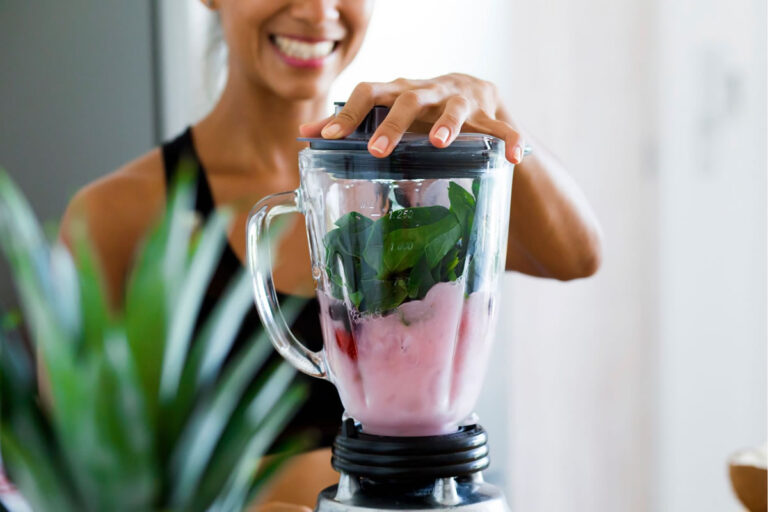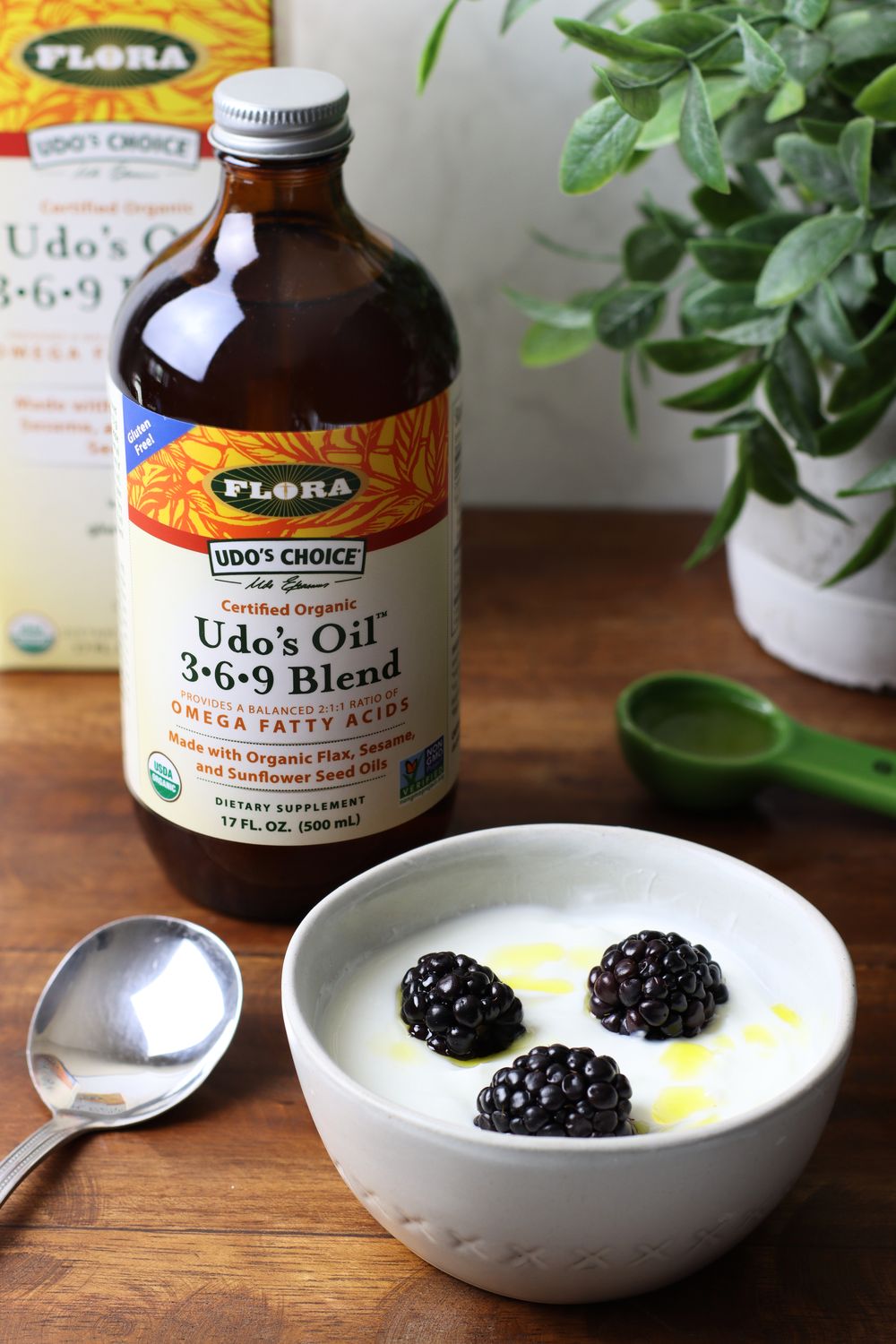Even if you have the willpower of champions, the last few months of the year can make it challenging to stick to a healthy routine. It’s time to form some healthy new year habits for 2025 and beyond!
With the colder weather of winter and less daylight, naturally, we feel more fatigued, want to eat more, and do less.
Add that to the extra stress of holiday travel and to-do’s, food-filled festivities, alcohol-laden social gatherings, and sweets lurking around every corner, it’s easy for your healthy habits to go right out the window.
And you’re not alone.
A study in The New England Journal of Medicine found that most Americans typically gain between 1-2 pounds between Thanksgiving and New Year’s day. Not so bad, right?
Another study from the Cornell University Food and Brand Lab found it may take up to five months to lose that innocent one pound of holiday weight. Yikes!
So once the New Year hits, it’s time to shift your mindset and get back on track.
Here are some New Year’s healthy habits to help you nourish your body.
When starting any new habit, you’ll be more likely to stick with it if you plan out how to work it into your routine.
You’ll also be more likely to form healthy habits when you envision how you feel once you stick with them.
These New Year habits should help you feel healthier, happier, and more energized. Try using a daily planner or downloading a habit-tracking app onto your phone to help you stay motivated and on track.
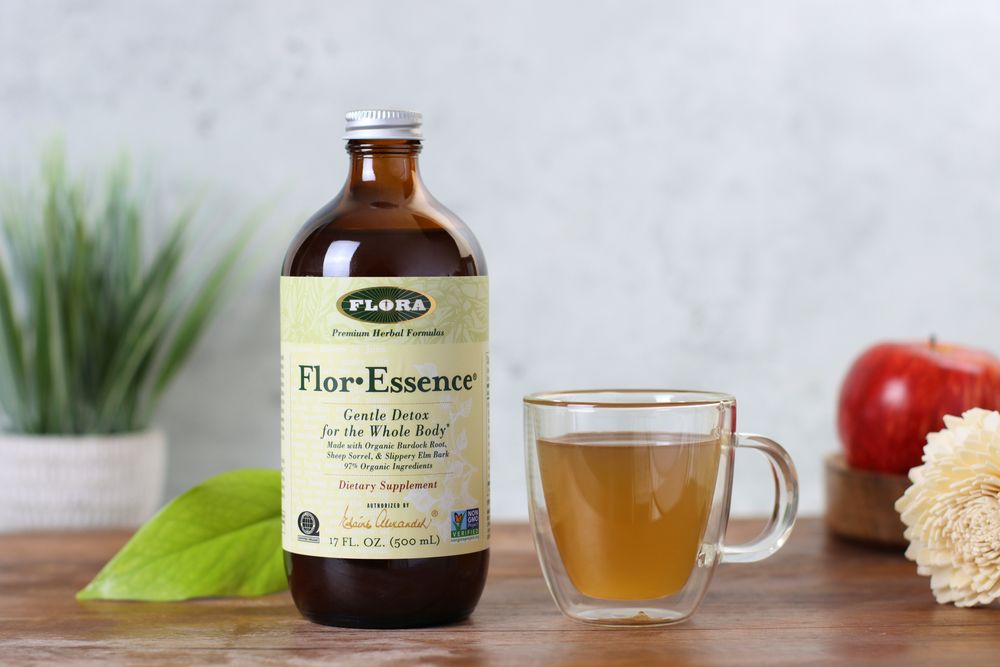
1. Start With a New Year Gentle Cleanse
The beginning of the year is all about starting fresh, making it the perfect time to do a cleanse. It’s especially recommended if you’re feeling tired, sluggish, or bloated, and your digestion is feeling off.
While our detox organs (liver, lymph, digestive system, skin, lungs, etc,) do a great job of removing bodily waste, sometimes they can get overtaxed.
Constant daily stressors like poor diet, not drinking enough water, pharmaceutical use, air pollution, infections, exposure to pesticides, and unhealthy ingredients in cosmetics can all negatively affect the way our bodies function.
Doing a cleanse is like pressing the reset button on your system and can give your body a chance to heal and restore itself. After doing a cleanse, many report feeling lighter, more clear-headed, and energized. It can also help you break those nasty sugar and caffeine cravings.
Cleanses of the past often had us doing mystery juice cleanses that left us starving.
Instead, start with an easy mini cleanse for 7 days. Here’s how.
- Eating completely organic and unprocessed. Go for lots of fruits, veggies, and lean, healthy protein.
- Stay hydrated by drinking lots of water (herbal teas are okay)
- Focus on sleeping well.
- Use a sauna if possible.
- Stick with light exercises like yoga and walking.
- Avoid any alcohol, smoking, caffeine, refined sugars, and processed foods.
For an extra boost, use a powerful yet gentle supplemental cleansing, herbal blend like Flor•Essence Liquid Tea Blend. Made with 8 antioxidant-rich organic herbs and inspired by a Native American recipe, each of the ingredients in this tonic work together to nourish cells while encouraging the body to cleanse at the cellular level.
With benefits supported by research, sip this 30 minutes before meals for the best results.
💡 Not sure if a cleanse is right for you? See these 16 Signs Your Body Could Use A Detox And Why It’s Important
2. Eat More Fruits and Veggies
Adding a variety of vegetables and fruit into your diet is one of the best habits to build if you want to stay healthy.
Fruits and veggies contain necessary vitamins, minerals, fiber, and plant compounds that keep your body nourished and your cells healthy.
They also provide much-needed antioxidants. These compounds neutralize free radicals, which are unstable molecules that can cause cell damage over time and can lead to a variety of diseases. There are thousands of antioxidants, so eating a variety of plant-based foods is best.
Together, these nutrients support healthy immunity, weight, and metabolism, but eating more plant-based is also associated with a reduced risk of developing chronic diseases later down the road.
Unfortunately, the CDC reports that only about 1 out of 10 of us are eating enough fruits and veggies.
It’s recommended that adults get at least 5 servings a day, although some studies suggest 10 is best.
With a little prep and planning, eating more fruits and veggies is an easy habit to develop.
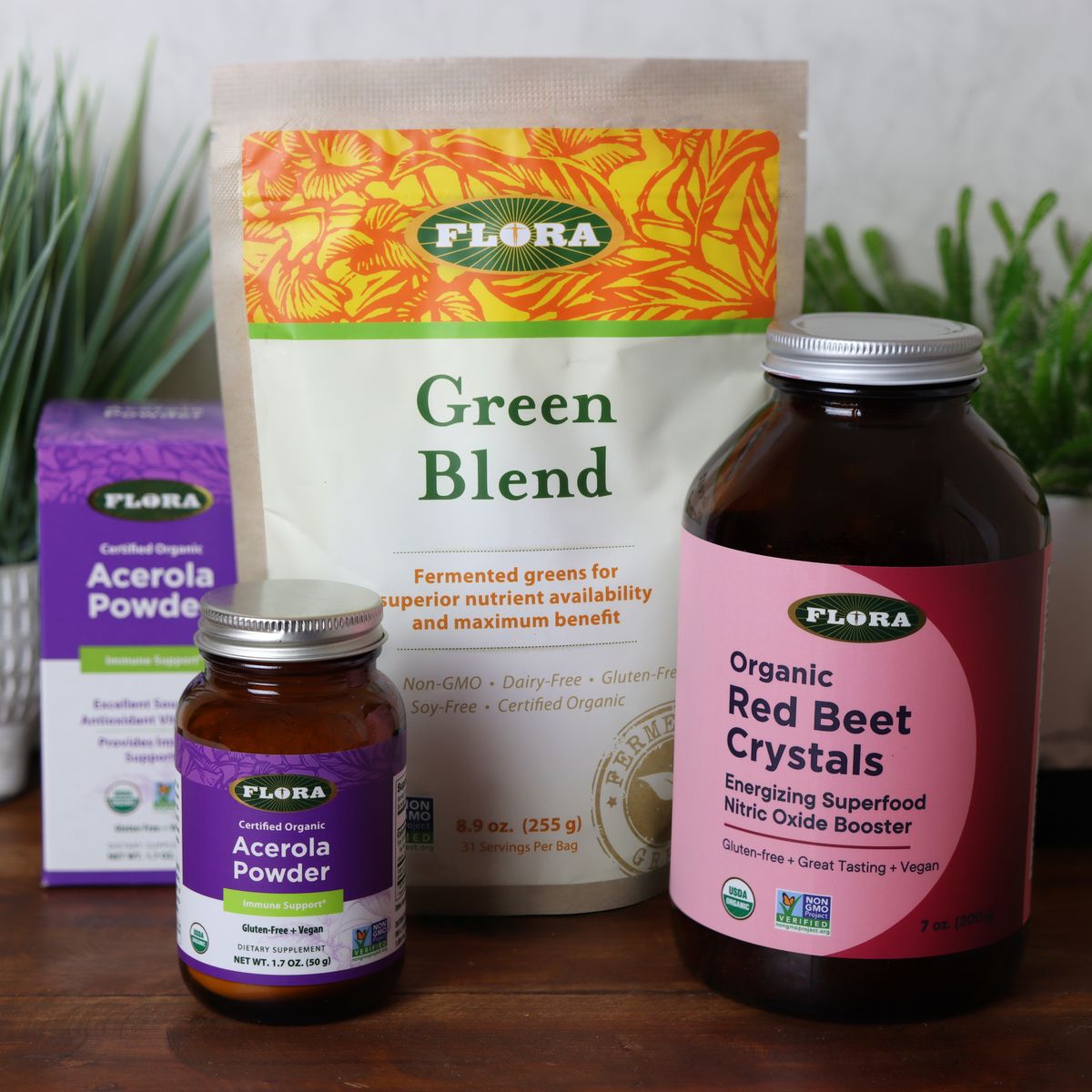
Here are a few easy ways to add more fruits and veggies to your meals:
- Add veggies to pizza when out or at home (basil, peppers, mushrooms, cherry tomatoes, artichokes, olives, etc.)
- Add veggies to scrambled eggs and omelets (broccoli, spinach, mushrooms, peppers, kale, tomatoes, etc.)
- Stock up on frozen veggies which are easy to add to soups and sautees.
- Swap out cauliflower or broccoli rice for white or brown rice, or do half and half.
- Top plain yogurt with fresh berries.
- Blend fruits and veggies into smoothies (fresh baby spinach has a neutral taste when blended and is super healthy.)
For convenient nutrient dense superfoods on the go:
1. Try a water-soluble green drink like Green Blend from Flora. It’s a blend of fermented grasses, organic whole foods, superfoods and herbs that will nourish your body with antioxidants, vitamins, minerals, amino acids, prebiotic fibers, and health-promoting phytonutrients that will boost your body’s nutrient intake in less than 48 hours.
2. Support energy, with Organic Red Beet Crystals from Flora. Made with organic beets and instantly soluble in water or tea, Organic Red Beet Crystals provide an easy and delicious way to get the health benefits of beets as often as you like. Add to dips, soups, herbal teas and smoothies.
💡 For a quick boost of nutrients, enjoy this easy Beet-Turmeric Refresher
3. Add Acerola Cherry Powder to your daily shake or smoothie. Acerola cherries contain essential, plant-based nutrients like zinc, manganese, B vitamins and are a surprisingly good source of potassium. They’re also one of the world’s richest natural sources of vitamin C, which supports the absorption of iron, healthy immunity, bones, cartilage, teeth, and skin.
💡 For a fun recipe, try these Immune Boosting Gummies
3. Get More Omega-3 Essential Fatty Acids
We need to eat healthy fats for hormone balance, energy, and help with the absorption of nutrients like vitamins A and D.
The problem is, 90% of us are deficient in omega-3 fatty acids, a type of polyunsaturated fat that we must get through our diet in order for us to stay healthy.
In the body omega-3, essential fatty acids play many roles. They support cognitive health and also help to balance hormones, support good mood, and a healthy cardiovascular system. There is evidence that they also promote healthy hair, skin, and nails. (1, 2, 3, 4).
So how many omega-3s do you really need?
After years of research, Udo Erasmus, a scientist and nutrition expert, found that eating a diet with twice as many omega-3s to omega-6s, is ideal for optimal health. The typical American diet currently serves up about ten times as many omega 6s as omega-3s.
Fatty fish like salmon, mackerel, anchovies, and sardines are great sources of the omega-3 fatty acids EPA (eicosapentaenoic acid) and DHA (docosahexaenoic acid).
But if eating fish is off the table, opt for plant-based sources of omega-3s as ALA (alpha-linolenic acid) from foods like walnuts, flax, and chia seeds.
For the right balance of essential fatty acids in a plant-based formula that is based on Dr. Erasmus’s years of research, try Udo’s Oil 3•6•9 Blend. Made from a healthy blend of organic flax, sesame, and sunflower seed oils, it has a rich, nutty, and buttery taste. You can drizzle over salads, and soups, or add to smoothies to get your daily dose of healthy fats.
💡 Learn more about the important benefits of essential fatty acids.
4. Drink More Water
Our body is 70% water and needs to have it replenished to stay healthy. So if you’re always reaching for juices or other sugar-laden beverages, it’s time to drink more H20.
Water aids our digestion, transports nutrients to cells, helps the body remove waste, and regulates our body’s temperature. It also helps provide cushioning and shock absorption for our joints, organs, and other tissues.
Drinking more water may also help you burn more fat and eat less, as we often mistake being hungry for being thirsty. One study found that water increased metabolism by 30% within 10 minutes after drinking, which lasted up to 40 minutes. [5]
According to the Mayo Clinic, “the amount of water you need depends on a variety of factors: the climate you live in, how physically active you are, and whether you’re experiencing an illness or have any other health problems.”
Forget the 8-glass-a-day (8 ounces) rule, which is now considered outdated.
Health experts now recommend drinking half your weight in ounces of water per day as a starting point. So if you weigh 150 pounds, aim to drink 75 ounces of water per day. Of course, drink more if you’re pregnant, breastfeeding, live in a dry climate or exercise intensely.
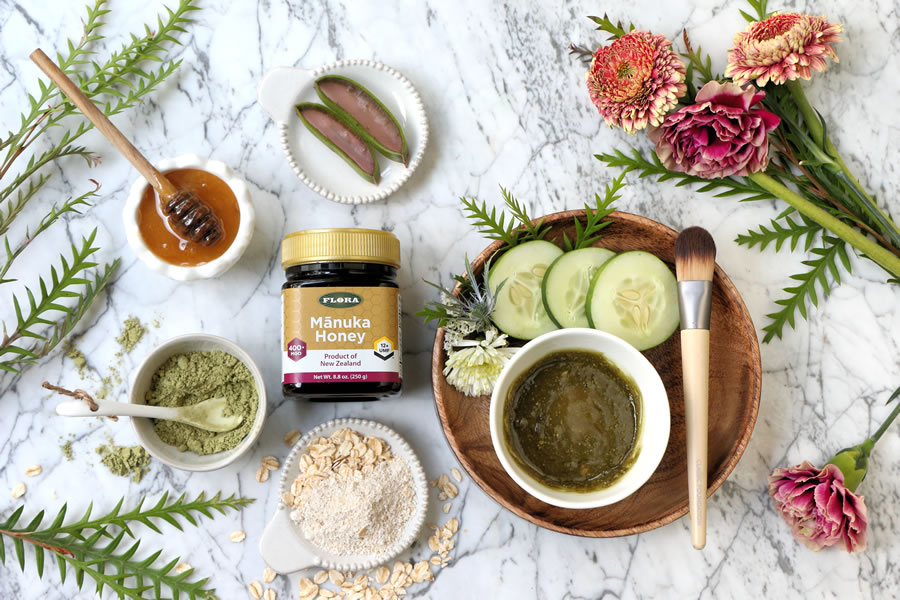
5. Take Care of Your Skin
When you think about nourishing your body, your skin may not come to mind. But the skin is our first line of defense against environmental stresses and microbial invaders.
Two easy ways to take care of your skin are by exfoliating weekly and moisturizing daily.
Exfoliation unclogs pores by removing dry and rough dead skin cells for smoother skin, but it also feels incredible and can improve circulation.
Regularly moisturizing helps hydrate, nourish and protect your skin while helping to keep its barrier strong. This is especially important if you live in a cold or dry climate.
To exfoliate your body, you can use tools like a natural shower bristle brush with a long handle or body scrubs, which are made with ingredients like sugar or salt you can rub onto your skin while showering.
What goes on your skin gets absorbed. Always use natural products on your skin that are free of added chemicals like parabens that are added to cosmetics to extend their shelf life. But many health experts believe they may mimic estrogen in the body and contribute to hormonal imbalance.
Healthy body moisturizing options include jojoba oil, almond oil, cocoa butter, and shea butter. For your face, always use a moisturizer that’s appropriate for your skin type.
💡 For a natural moisturizing face treatment, try this DIY Manuka Honey + Vanilla Face Scrub.
💡 Also see 6 DIY Mānuka Honey Face Masks For Every Skin Type
6. Switch Out That Afternoon Coffee for Green Tea
Most of us look forward to that freshly brewed cup of coffee each morning. But too much caffeine can dehydrate us while increasing our stress hormone cortisol, which can end up making us feel tired, wired, and run down. Over time, too much cortisol may also lead to weight gain and excess belly fat.
Instead of giving up coffee, try cutting back slowly over time to avoid withdrawal symptoms like headache and fatigue.
Green tea or matcha, a finely ground green tea, makes a delicious and healthy alternative that’s packed with antioxidants. With about half the caffeine of a cup of coffee (50mg for green tea vs 100mg for coffee), it will keep you energized without the jitters.

7. Get Your Body Moving
Even if we don’t want to admit it, we all know exercise is good for our bodies. And if you haven’t been active, it’s time to get moving.
Exercising regularly can improve your mood, help you sleep better, and relieve your stress. But it can also build more lean muscle while helping you burn more calories and fat. [6]. [7}
Most health experts now recommend adults get at least 150 to 300 minutes of moderate (or 75 to 150 minutes of vigorous) aerobic activity a week.
But you can get the benefits of exercise by simply walking. A 2008 study found that participants who were previously sedentary felt 20% more energetic and 65% less fatigue after following a set walking program.
Here are some tips to help you get started walking:
- Aim to walk for at least 20-30 minutes 5 times per week
- With any exercise program, start with 15-30 minutes a few times per week. Gradually increase the time and frequency as you become more conditioned.
- Get at least 7000 steps per day: Research shows increasing your step count may help you live longer [8]. Get a fitness watch or pedometer to help you keep track.
Once you have your walking habit set, add in a couple days of strength and resistance training to target and strengthen different muscle groups and provide different benefits.
8. Incorporate Breathing Exercises Into Your Daily Routine
While food nourishes our bodies with nutrients like proteins, fats, carbohydrates and vitamins, and minerals, our breath nourishes our bodies as well.
As we inhale and take oxygen into our lungs, it’s then sent into our blood to be delivered to the rest of our cells. Exhaling allows our body to release a waste product of our metabolism.
While doing breathing exercises, also known as belly breathing or diaphragmatic breathing, can help oxygenate our blood and help release carbon and dioxide (CO2) stagnant air left in the lungs, it can also help calm the mind while reducing anxiety and stress. Breathing exercises are also the core of many relaxing practices like yoga and meditation.
Try this easy belly breathing exercise:
- Sitting up or lying down, relax your neck and shoulders and close your eyes.
- Lay one hand on your stomach.
- Breathing in through your nose for a count of 6, feeling the breath travel down into your lower belly. You’ll feel your diaphragm rise.
- Hold your breath for a moment.
- Then breathe out for a count of 3, fully emptying your lungs.
- Repeat 5-10 times.
Do breathing exercises anytime you’re feeling stressed, to help you focus, before or after a workout, or while relaxing in bed at night.
9. Establish A Regular Sleep Routine
If you want to truly nourish your body, prioritizing your sleep is crucial. Although the right amount of sleep can vary from person to person, most of us can benefit from a solid 7 to 9 uninterrupted hours each night.
Sleep nourishes our body in several ways:
- It helps the body repair itself
- It helps support healthy immunity
- It reduces stress, anxiety, and depression
- It supports healthy weight and healthy hormones
- It promotes a cheerful mood
- Supports sharp memory and productivity
One of the best ways to support restful sleep and improved sleep quality is to stick to a regular sleep schedule. That means going to bed at the same time every night.
Once you’ve chosen a regular time that works for you, here are tips to help you get an amazing night’s rest every night:
- To wind down, avoid TV or electronic devices for up to an hour before bed. Try a cup of sleep supporting tea like tulsi (holy basil), lemon balm, valerian, passionflower or chamomile to help relax your body.
- Plan the next day’s to-do list to get distractions off your mind.
- Create a sleep-friendly environment that’s dark and quiet. Be sure to silence notifications on your phone.
- Set your room temperature between 60 and 68F (or 15-19°C) which is the ideal recommended temp for restful sleep.
With a consistent sleep routine, your sleep quality should improve within 10 to 14 days. You’ll know your sleep routine is working when you wake up feeling more refreshed and energized.
➡ For more healthy tips and superfoods to nourish your body for the New Year, visit FloraHealth.com
Better Living uses affiliate links. If you make a purchase through them, we may receive a small commission (for which we are deeply grateful) at no cost to you.

